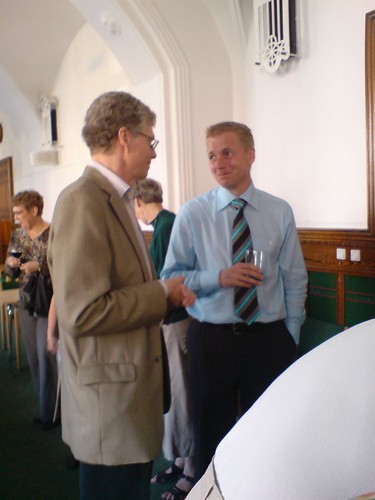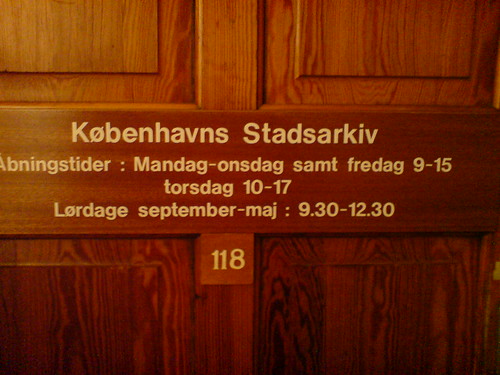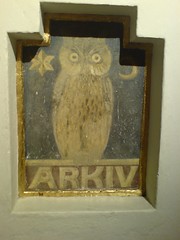Saturday, May 19, 2007
Friday, May 18, 2007
Brown 'humbled' by Labour backing
Accepting the nomination Mr Brown said he would seek to 'rebuild trust in politics' and promised to lead a government with 'new priorities'.
Mr Brown is set to take over as prime minister from Mr Blair on 27 June 2007"
Thursday, May 17, 2007
Southwell Workhouse Research Group
Southwell Workhouse Research Group - Google Search
Southwell Workhouse: "At the end of the French Wars the cost of poor relief reached new heights. In 1784, it was estimated that poor relief cost £2 million; by 1815 it had reached £6 million, at a time when attitudes towards poverty and the poor were beginning to change. In the period following the passing of the Elizabethan Poor Law (1601) it was generally accepted that the poor should be looked after but increasingly, it was felt — by the ratepayers — that poverty was the result either of idleness or of a personality defect.
Consequently, it was thought that the poor should be encouraged to find work or be 'taught the error of their ways'. Nottinghamshire was the first area to implement a system of poor relief that was intended to deter the poor from seeking parish relief and hence reduce the poor rates. The implementation of the idea was largely the work of the Rev. John Becher; he insisted that those claiming poor relief would be institutionalised in conditions 'less eligible' than those of the poorest labourer outside the workhouse. Others who were involved in the 'Nottinghamshire reforms' were George Nicholls and the Rev. Robert Lowe.
Nicholls became an overseer for the parish of Southwell in the early 1820s and was responsible for putting into practice a system of poor relief recommended by the Rev. Robert Lowe — Becher's cousin and the vicar of Bingham"
FamilySearch to Provide Access to World's Genealogical Records
Dick Eastman wrote:-
"I published an article yesterday entitled, Rumor Mill: LDS Family History Centers to Offer Additional Online Resources. I must admit that even I was surprised when The Church of Jesus Christ of Latter-day Saints made an announcement only a few hours later, early on Monday morning. The announcement is everything that I had predicted and a lot more.
In fact, I believe this is perhaps the most important genealogy announcement of the past few years.
The first part of the announcement is a name change. Of course, the Church's web site is well known as FamilySearch.org. That brand name has become synonymous with genealogy searches. The Genealogical Society of Utah, an organization fully subsidized by The Church of Jesus Christ of Latter-day Saints, has always performed the business of collecting and preserving records of genealogical interest. Now the name of Genealogical Society of Utah is being changed to FamilySearch. The organization that collects, preserves and publishes records of genealogical interest is now one and the same as the web site.
Next, FamilySearch has announced a major new program that will aid other organizations in placing their records online. FamilySearch will provide free services to archives and other records custodians who wish to digitize, index, publish, and preserve their collections. As mentioned in the announcement, "FamilySearch will also provide tools and assistance to records custodians who want to publish parts of their collection using state-of-the-art digital cameras, software, and web-based applications."
The result will be digitized records that may be hosted on FamilySearch.org or on most any other web site. FamilySearch is not concerned where the records will be hosted, only that the records be available to the general public for free or for a reasonable fee. The Church's goal is to increase public access to massive genealogy collections worldwide, regardless of where the information is located.
Even better, the providers of the information may opt to have the index of the record collection available for free on FamilySearch. Anyone who visits FamilySearch.org can search for records hosted on thousands of web sites, find a record of interest, click on the link and immediately view the record of interest. It makes no difference if the record itself resides on FamilySearch.org or on your local genealogy society's web site or any other web site that is a part of this collaborative effort.
One method of looking at this is that FamilySearch.org will now become the equivalent of a "Google for Genealogy." You will be able to visit one free web site and perform searches of tens of millions of genealogy records. You click on the link for a record and the next page you see will be that record, regardless of where the digital record is hosted
I would also point out one more item of note in the announcement:
FamilySearch will announce the first collaborative projects of its new Records Access program during the National Genealogical Society (NGS) Convention in Richmond, Virginia, the week of May 14, 2007. Many more project announcements are expected in the following months."
but I cannot find the original press relesase yet
Tuesday, May 15, 2007
World Vital Records

Serial entrepreneur Paul Allen has been involved in more than a dozen startup companies over the past 18 years. Best known as co-founder of Provo genealogy research service MyFamily.com – recently renamed The Generations Network – Allen and business partner, Dan Taggart, helped raise $90.5 million in venture capital through their company, Ancestry.com, to launch the MyFamily.com Web site in the mid-‘90s.Even after leaving the company in 2002, Allen hasn’t stopped creating companies such as FamilyLink.com, a social network for family history enthusiasts. The company has 12 workers and Is generating revenue from a subscription site WorldVitalRecords.com.
Monday, May 14, 2007
Directories like Kelly's
"Is my ancestor going to be found in a directory?
Not necessarily. The early directories included people with trades. This doesn't mean just businesses and shops, but anyone with a recognised trade, such as a chimney sweep, a teacher, or a dress maker working from home.
Apprentices and labourers were not included, although in the later post 1900 directories, that had street listings of people in major towns, such people were included. (Ironically, the 1791 Universal British Directory does include some labourers). In any case, only the head of household was listed in a directory, not wives or children, and not lodgers."
also useful as census substitutes
important new danish database
35 km of shelves and 15 years of cataloguing

The opening ceremony was conducted by Mayor Martin Geertsen (Kultur- og Fritidsborgmester) on the right seen talking with stadsarkivar i København Henrik D. Gautier
Martin Geertsen - Google Search - "Henrik D. Gautier" - Google Search
Search STARBAS
"Arkivdatabasen er opbygget på grundlag af teksten i Stadsarkivets registraturer. Nye afleveringer bliver løbende inddateret, så databasen til en hver tid indeholder den aktuelle registrering af Stadsarkivets arkivalier.
Stadsarkivets meget omfattende Kort- og tegningsregistratur er under indtastning og er derfor ikke med i Arkivdatabasen.
Man skal være opmærksom på, at der findes et hierarki inden for arkivskaberne, og at man derfor af og til har brug for at kigge på relationer til andre arkivskabere (underordnede eller overordnede). F.eks. er de enkelte hospitalsafdelinger selvstændige arkivskabere og figurerer som underordnede arkivskabere til selve hospitalet. Patientjournaler skal derfor søges under den enkelte afdeling og ikke hospitalet.
Det er endnu ikke muligt at bestille arkivalier online.
Fremgår det af databasen, at arkivalierne er i fjernmagasin, kan man sende et print af bestillingssedlen til
Københavns Stadsarkiv
Rådhuset
1599 København V
Tlf. 33 66 23 70
E-mail: stadsarkiv@kff.kk.dk
For arkivalier i fjernmagasin er der en ekspeditionstid på to hverdage gældende fra den dag, Stadsarkivet har modtaget bestillingen.
STARBAS - Version 1.00 14.05.2007"
Københavns Stadsarkiv web site
attending the reception was part of my day
digging up a rats nest and a visit to Copenhagen City Hall - a photoset on Flickr: View as slideshow (





